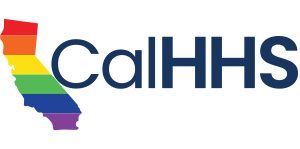Over the past few years we have spent a great deal of time opening our data and engaging with stakeholders to improve the programs and services we deliver. This work has also given us the opportunity to discuss how to better utilize data internally to improve our role and function as a government agency.
To capitalize on this work, we developed the CHHS Data Playbook to help further build processes and an organizational culture that is focused on data and data-driven decision making. This tool serves as a hub for data-related resources available to all CHHS Departments. This Data Playbook will change and adapt based on our collective experiences, and we have encouraged Departments to contribute to the resources and toolkits in order for us to share and learn together. We encourage everyone to help inform and shape the Data Playbook.
The Data Playbook consists of five plays designed to help Departments utilize data to inform program and policy development. Each play contains data strategies, approaches, and actions a Department could use to administer programs and address policy issues. The resources included in the Data Playbook are intended to expand consumers of data, this includes program and data analysts, budget analysts, procurement analysts, as well as policy and legislative analysts. It is our hope that Departments will leverage the various components of the Data Playbook and will customize to meet their needs.
As we iterate and build on the first edition of the Data Playbook, we will look to integrate new and existing resources. We know that a tremendous amount of work has been done already within Departments, and the Data Playbook will incorporate best practices and lessons learned in order to further disseminate these efforts. Moreover, as we identify gaps and needs, we will look to develop new resources intended to bolster our capacity and equip our employees with the necessary tools to succeed.
Since we launched the Data Playbook at our second-annual Data Expo in June, 2016, we have developed and added two new and important resources. First, a data sharing framework, which is intended to be the default legal agreement between CHHS Departments for all data types. This is intended to make it easier and faster to safely share confidential data among CHHS departments, while providing the appropriate documentation. It also will help to standardize data use agreements among our Departments, and reduce contracting and redundancies.
Second, we developed the Data De-Identification Guidelines, which are designed as a tool for Departments to prepare data for public release. The guidelines are intended to assist Departments in assuring that data is de-identified and meets the requirements of state and federal privacy laws to prevent the disclosure of personal information. These guidelines help CHHS Departments to release more open data to the public, safely and efficiently, to promote transparency while appropriately managing risk.
As we shift our focus from program-centered to person-centered, there is a growing need for disciplines to converge and government silos to integrate in order to improve services and outcomes. Furthermore, we have an opportunity to use the Data Playbook to bring people together to solve complex problems. This tool will help Departments identify how and when data can be used to improve both outcomes for consumers and the value of programs.
In the coming months we plan to further test these five plays by implementing the Data Playbook within and across Departments; collecting existing resources—from inside and outside of government—which can be leveraged with each play to further help Departments better utilize data; and establish and foster new opportunities for staff to come together to share learnings and best practices.
Please check out the Data Playbook on our GitHub page and provide us with feedback. If you have tools or resources that we can build into the Playbook, please share those with us by emailing us at dataplaybook@chhs.ca.gov.
Thanks for your continued partnership!
—
Michael Wilkening
Undersecretary
Health and Human Services Agency


